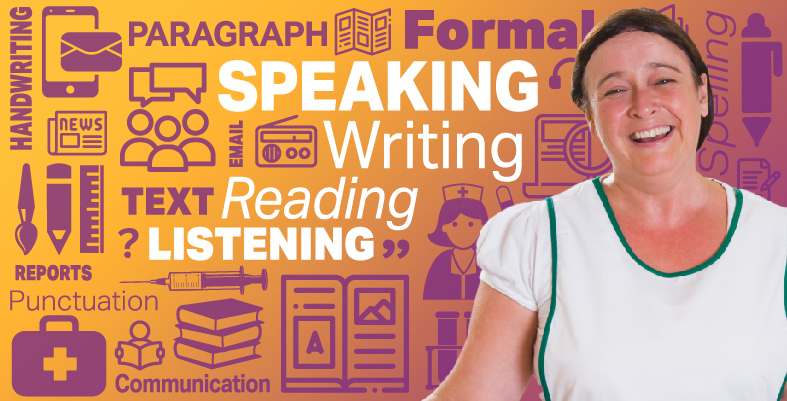Home » Course Layouts » Free Course Layout Udemy
Having good English skills is important in everyday life. In fact, being able to communicate effectively can improve your career prospects or if you decide to continue your studies.
0
34
English
English [CC]
- Learn basic syntax that can apply to any language.
- Learn what is a programming language and the basic concepts for beginners.
- Understand what is Javascript in it's truest form.
- Know the basic syntax of Javascript.
- Know some hidden quirks in Javascript.
Description
This course, adapted for the health, social care and education sector, is an introduction to Level 2 Functional Skills in English with tips and techniques to help you communicate more effectively in everyday life.
Working through the examples and interactive activities in this course will help you to understand the different ways in which we communicate and how to use simple techniques to improve your self-confidence in taking part in discussions or writing letters or emails.
This course has been produced as part of the Department for Education's Flexible Learning Fund and with the kind support of Dangoor Education , the educational arm of The Exilarch's Foundation.
This course was written by Middlesbrough College in partnership with West Herts College, Bedford College Group and The Open University.
Earn this free Open University digital badge if you complete this course! The badge can be displayed, shared and downloaded as a marker of your achievement. The badge is awarded for completing the course and passing the quizzes.
Course learning outcomes
After studying this course, you should be able to:
- Listen, understand and make relevant contributions to discussions with others in a range of contexts
- Apply your understanding of language to adapt delivery and content to suit audience and purpose
- Read a range of different text types confidently and fluently, and apply your knowledge and understanding of texts to your own writing
- Write texts of varying complexity, with accuracy and effectiveness, and correct spelling, punctuation and grammar
- Understand the situations when, and audiences for which, planning, drafting and using formal language are important, and when they are less important.
Course content
- Introduction and guidance 00:20:00
- What is a badged course? 00:15:00
- How to get a badge 00:20:00
-
- Introduction 00:15:00
-
- Speaking in different ways 00:20:00
- Adapting your style 00:10:00
- Formal and informal language 00:25:00
- Non-verbal communication 00:10:00
- I’d like to say something … 00:02:00
- It’s the way you say it 00:15:00
- Presentations 00:10:00
- Structure 00:10:00
- Describing and persuading 00:15:00
- Cues 00:20:00
- Markers and signposts 00:10:00
- Are they listening? 00:15:00
- Any questions? 00:15:00
- Summary of Session 1 00:15:00
- Why and how you read 00:07:00
- Why you read 00:45:00
- Highlighting 00:15:00
- Extracting information 00:45:00
- Fact, opinion and bias 00:07:00
- Prejudice and bias 00:25:00
- Fact and opinion 00:30:00
- Reports 00:05:00
- What are reports for? 00:15:00
- Formal reports 00:25:00
- How to read a report 00:30:00
- Summary of Session 2 00:20:00
- The six steps to writing success 00:05:00
- Preparing 00:10:00
- Planning 00:15:00
- Drafting 00:15:00
- Editing 00:15:00
- Redrafting 00:15:00
- Proofreading 00:20:00
- Writing to inform, persuade and advise 00:05:00
- Writing to inform 00:30:00
- Writing to persuade 00:25:00
- Writing to advise 00:15:00
- Formal or informal? 00:30:00
N.A
- 5 stars0
- 4 stars0
- 3 stars0
- 2 stars0
- 1 stars0
No Reviews found for this course.










